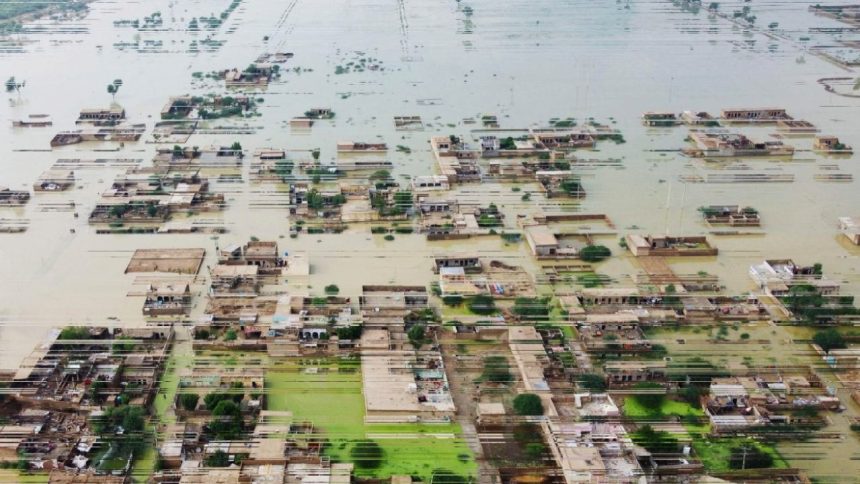Despite staying relatively safe from floods this year, the necessity for flood-resilient infrastructure cannot be overstressed. The federal government also understands this and has expressed “zero tolerance” for delays in this regard.
When the devastating floods hit the country back in 2022, the government made commitments of moving ahead with flood-resilient infrastructure. For this, the international community also pledged tens of billions of dollars. However, to this day, only a handful of those pledges have materialized, whereas the rest of them are still in limbo.
On Monday, Minister for Planning, Development and Special Initiatives Professor Ahsan Iqbal chaired the 4th meeting of the Policy and Strategy Committee (PSC) and Oversight Board on Post-Flood Reconstruction Activities. During the meeting, he took stock of the delays in the projects and sought the incomplete PC-I documents within 15 days. He said that the delays in these projects must be addressed promptly.
The meeting was convened to discuss the decisions taken during the previous round and to get updates on the flood-resilient project and reconstruction efforts in flood-hit areas. Besides, the participants also gathered to discuss the pledges made by the international community.
Mr. Iqbal told the meeting that when the floods submerged one-third of the country between June and August in 2022, 33 million people were affected, including 8 million individuals who were displaced. He highlighted that 1,700 individuals lost their lives, including one-third of children. This unprecedented catastrophe underscored the state of vulnerability Pakistan finds itself in amidst the changing climate. What complicates the situation is the fact that Pakistan is among the least contributors to global greenhouse gas emissions, whereas it is among the most affected states.
To prevent another incidence of the same magnitude in the future, the Ministry of Planning came up with the Resilient, Rehabilitation and Reconstruction Framework (4RF) to enhance Pakistan’s capacity to restore normalcy in the lives of those affected, revive the national economy, promoting social participation and to build resilient physical infrastructure.
The minister noted during the meeting that the country needed at least $16.2 billion to recover from the damages amounting to $30 billion, whereas only $10.9 billion had been received from the pledges made to the country. It is worth mentioning here that according to the Post-Disaster Needs Assessment (PDNA), the number of individuals affected by food insecurity was poised to rise to 14.6 million from the previous figure of 7 million, thus showing an increase of nearly 100 percent. Besides, 780,000 houses were completely damaged whereas 1.2 million units incurred damage during the floods.
The minister said that Pakistan, in collaboration with international partners, launched various initiatives to deal with the impact of the floods. He said that the meeting he was addressing was meant to gauge the progress of those initiatives and to ensure transparency and efficiency in this regard to boost the confidence of those sponsoring Pakistan’s efforts.
Mr. Iqbal also pointed out the continuing threats emanating from climate change, highlighting that changing climatic patterns led to losses in Pakistan’s agriculture sector. He also expressed concerns over the delays in reconstruction efforts being undertaken in Balochistan, one of the most underdeveloped regions of Pakistan, and urged the concerned authorities to accelerate the pace of work.












